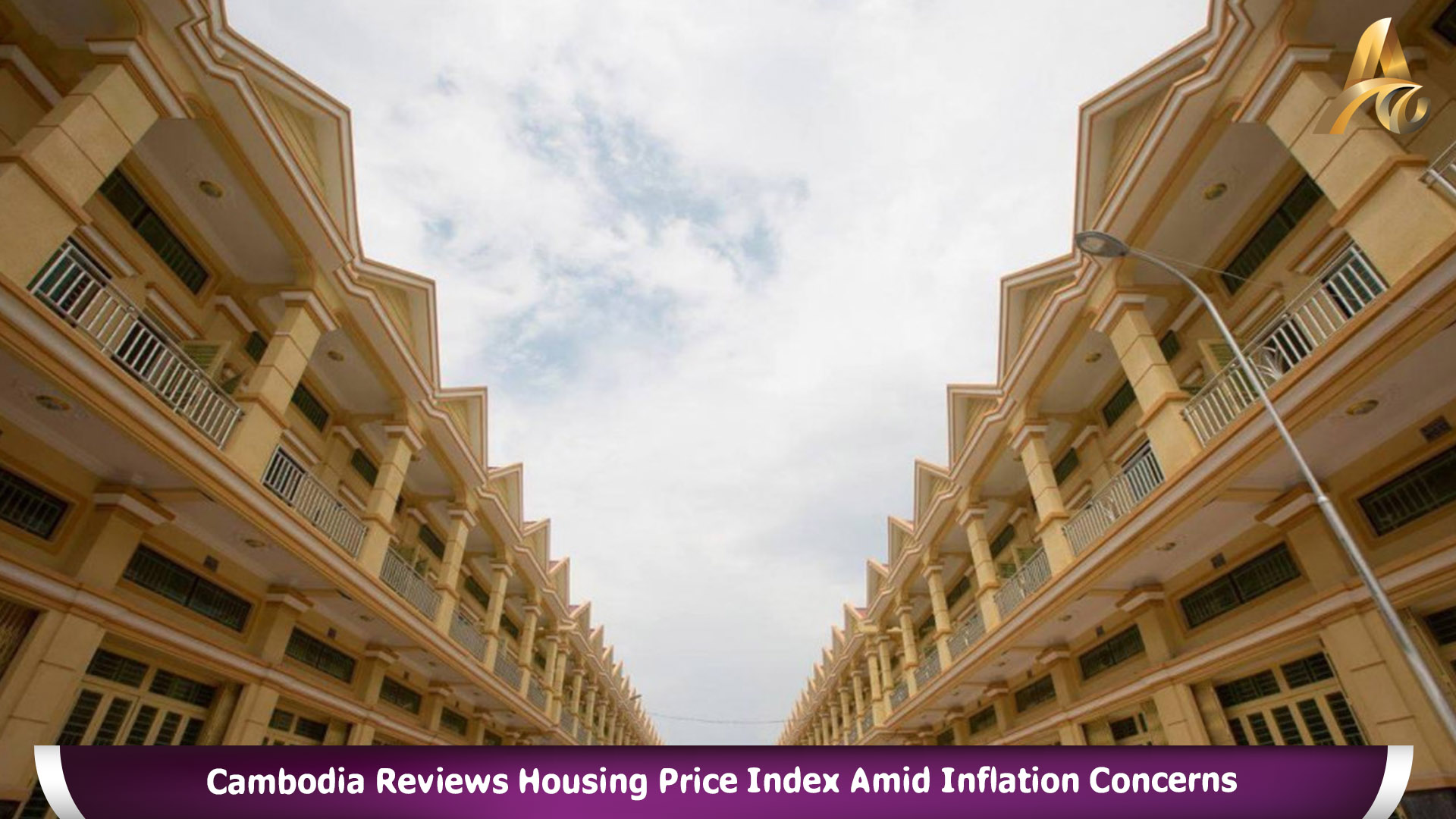PHNOM PENH, Cambodia 17 May 2024 - Cambodia's National Bank of Cambodia (NBC) is reviewing its methodology for measuring housing prices, following concerns raised by the International Monetary Fund (IMF) about the accuracy of its Residential Property Price Index (RPPI).
The review comes amidst Cambodia's relatively low inflation rates. The Asian Development Bank (ADB) recently forecast Cambodia to have one of the lowest inflation rates in Southeast Asia this year, at around 2.0%, compared to neighboring countries like Laos (20.0%) and Myanmar (15.5%).
Traditionally, inflation is tracked through the Consumer Price Index (CPI), which monitors the price changes of everyday goods and services. However, the real estate boom in recent years prompted the NBC to launch the RPPI in mid-2022, specifically focusing on housing prices.
The RPPI, similar to the CPI, provides an overall national housing price index based on data from housing loans issued by Cambodian banks. Initially, the index showed a concerning upward trend. Data published in June 2022 indicated a 9% increase in housing prices nationwide compared to 2020. This figure rose further to a peak of 16% by mid-2023 before stabilizing at around 12% in early 2024.
However, the IMF expressed concerns about the index's trajectory. A technical mission led by senior economist Barra Casey visited Phnom Penh in January to assess the RPPI methodology. Casey, with expertise in real estate statistics and a history working for the Bank of Ireland during the 2008 financial crisis, raised concerns about potential overestimation of price increases.
The IMF report highlighted discrepancies between published data and updated figures. For instance, the initial data for the 18 months leading to June 2021 showed a 16% price increase, while updated data revealed a more moderate 11% rise.
The review also identified limitations in the RPPI's data collection. The current method relies solely on loan data from Cambodian banks, excluding cash purchases, foreign bank loans, and property developer purchases financed through external sources. Additionally, the index only covers Phnom Penh and the provinces, with apartments specifically excluded.
The IMF recommends the NBC address these limitations by:
Expanding Data Sources: Combining bank loan data with information from the Ministry of Economy and Finance's General Department of Taxation and exploring real estate website listings.
Enhanced Geographic Coverage: Dividing Phnom Penh into sub-indices based on central, inner suburbs, and outer suburbs.
Improved Methodology: Lowering the minimum land area considered for loans, excluding property developer loans, and including data from microfinance institutions for provincial transactions.
The IMF mission, in collaboration with the NBC, aims to finalize the revised methodology by December 2024. This includes updating existing indices, comparing them with previously published data, and potentially revising historical data back to 2020. The updated methodology will be published on the NBC website.
The review of the RPPI underscores the importance of reliable housing price data for assessing real estate market trends and potential risks. This information is crucial not only for policymakers but also for the IMF's ongoing country surveillance efforts in Cambodia.






















